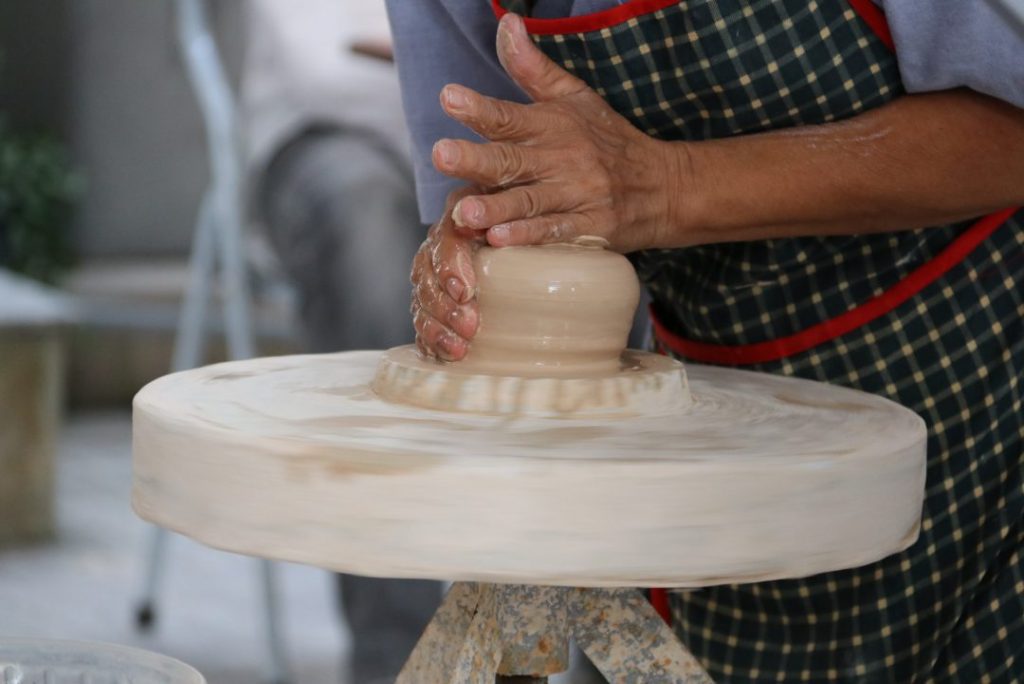
When I was in Hanoi back in 2009, I only covered a few city attractions. My impression of Hanoi back then wasn’t very good, as compared to the Ho Chi Minh City, where the people are friendlier. The roads were definitely wider here in Hanoi and the people were more outspoken. Now that was ten years ago.
Ten years later, things have certainly changed – along with my perspectives of this capital city. This time, I ventured further out to the countryside to visit a couple of villages. The first village we visited was Bát Tràng Village which is a traditional ceramic and pottery village located beside the red river. It is about 10 km away from Hanoi city centre.
What does Bát Tràng means?

My Vietnamese has certainly gone rusty over the years because I could barely string a sentence. But thanks to Google translate, we can now unlock the meaning of this foreign language. ‘Bát’ literally means bowl while ‘Tràng’ means workshop. When you visit this seven-century old village, you can find rows and rows of pottery shops selling handmade ceramicwares.
You can even come here for a pottery workshop to learn how to make your own ceramic bowl from pottery artists and find out how traditional pottery was made in the past.
A visit to a Pottery Workshop in Bat Trang
We were brought directly to this place via our tour bus so we did not really have a chance to explore the village on foot. The pottery workshop we visited has this large gourd kiln (or dragon kiln) which is 15 metres long!
The Last Gourd Kiln in Bat Trang Village

This is the last gourd kiln remaining in this village where potteries are being fired. In fact, there used to be 20 of such kilns here in Bat Trang village but today, there is only remaining.
We have such a long kiln in Singapore too! There is one dragon kiln left in Singapore as well but it is not as extensive as this.
This 500-year old wood-fired kiln is a system of kilns joined together and the temperature of such furnaces can reach as high as 1300 degrees celsius.

Currently, this kiln is no longer in used as more advance pottery burning technologies are used in place of this traditional method of firing ceramics.

Ceramic Production

This pottery workshop also produced Vietnamese ceramics at a large scale to be sold within and outside of Vietnam.
A hands-on Pottery-making session

After touring the vicinity, we get to have a hands-on session with moulding the soft clay using the pottery wheel. But first, the pottery artisans have to demonstrate on how the clay could be shaped.

As you can see from the photographs, the pottery wheel does not come with a foot pedal. That means we have to manually turn the pottery wheel with one hand while moulding the clay.

It was no easy task but under the deft hands of the artisan, she managed to mould something beautiful out of ordinary clay.

The fun part about pottery-making is injecting your creativity and energy into the mouldable clay.


The best part? We don’t have to be perfect.

There are no rules after all.


Ceramic Painting

We are unable to bring back the pottery we have created since it takes hours or even days for to fire the clay to become ceramics. However, we get to paint and bring home these ready-made clay figurine pieces.

The finished product can be brought home as souvenirs. But nothing beats bringing back a ceramic bowl or plate which is more functional.
Have you visited Bat Trang village before? Let me know in the comment box below.





